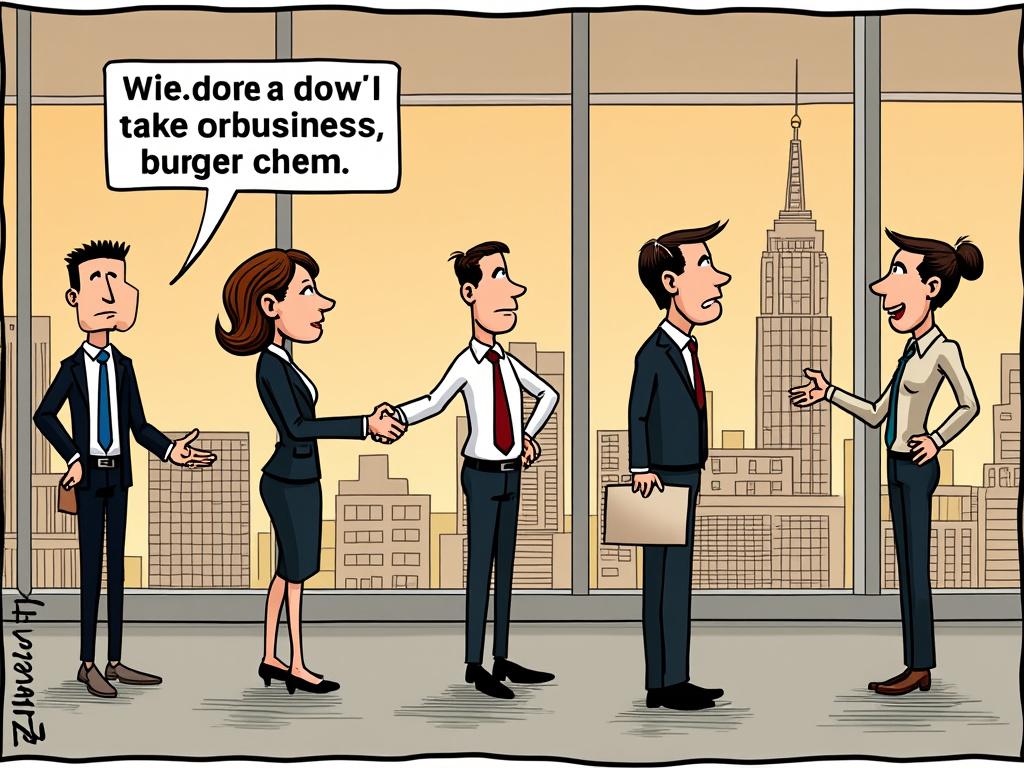
How to Take Advantage of Extended Tax Incentives for R&D in Greece for 2025
Reading time: 12 minutes
Ever wondered how Greek businesses are turning research and development investments into substantial tax savings? You’re about to discover the strategic roadmap that savvy entrepreneurs and established companies are using to maximize their R&D tax benefits in 2025.
Table of Contents
- Understanding the R&D Tax Incentive Landscape
- Eligibility Criteria and Requirements
- Strategies for Maximizing Your Benefits
- The Application Process Demystified
- Overcoming Common Implementation Challenges
- Your Strategic Implementation Roadmap
- Frequently Asked Questions
Understanding the R&D Tax Incentive Landscape
Well, here’s the straight talk: Greece has positioned itself as one of Europe’s most attractive destinations for R&D investment, and the 2025 incentives are nothing short of game-changing. The Greek government has extended and enhanced tax benefits that can reduce your effective tax burden by up to 200% of qualifying R&D expenses.
Let’s break down what makes these incentives so compelling. The current framework allows businesses to claim deductions that exceed their actual R&D spending—essentially turning research investments into immediate tax advantages. This isn’t just about cost recovery; it’s about creating competitive financial leverage.
Key Incentive Components for 2025
The enhanced R&D tax framework includes several strategic elements:
- Super Deduction Rate: 200% deduction on qualifying R&D expenses
- Extended Timeline: Benefits now available through December 2025
- Streamlined Application: Simplified documentation requirements
- Sectoral Expansion: New qualifying industries including fintech and clean energy
Quick Scenario: Imagine you’re running a software development company in Athens. You invest €100,000 in qualifying R&D activities. Under the enhanced scheme, you can claim €200,000 in tax deductions—effectively saving approximately €52,000 in corporate taxes (based on the 26% corporate tax rate).
Comparative Advantage Analysis
R&D Tax Benefits: Greece vs. EU Competitors (2025)
Eligibility Criteria and Requirements
Ready to transform your R&D investments into tax advantages? Understanding eligibility is your first strategic checkpoint. The Greek tax authorities have established clear parameters that determine qualifying activities and expenses.
Qualifying R&D Activities
Not all research activities qualify for enhanced deductions. The framework focuses on systematic investigation aimed at increasing knowledge and developing new applications. Here’s what counts:
| Activity Type | Qualification Status | Key Requirements | Documentation Needed |
|---|---|---|---|
| Basic Research | Fully Qualifying | Systematic investigation to advance knowledge | Research protocols, methodology |
| Applied Research | Fully Qualifying | Directed toward practical applications | Project objectives, commercial viability |
| Experimental Development | Conditionally Qualifying | Must involve technical uncertainty | Innovation reports, technical challenges |
| Market Research | Non-Qualifying | Commercial analysis excluded | N/A |
| Software Development | Qualifying (Enhanced) | Novel algorithms, technical innovation | Code documentation, innovation claims |
Company Eligibility Framework
Your business structure and operational characteristics significantly impact eligibility. Small and medium enterprises (SMEs) receive preferential treatment, but larger corporations aren’t excluded from substantial benefits.
Case Study: TechnoVation SA, a mid-sized Athens-based AI company, successfully claimed €1.2 million in R&D deductions for 2024. Their key to success? Meticulous documentation of algorithm development processes and clear separation of qualifying research from general software maintenance activities.
Strategies for Maximizing Your Benefits
Pro Tip: The right preparation isn’t just about avoiding problems—it’s about creating scalable, resilient tax optimization strategies that compound your competitive advantages year over year.
Strategic Expense Classification
Maximizing your R&D tax benefits requires sophisticated expense categorization. Many businesses leave money on the table by misclassifying eligible expenses or failing to capture indirect R&D costs.
Qualifying Direct Expenses:
- Researcher salaries and benefits (including social security contributions)
- Laboratory equipment and software specifically for R&D
- Raw materials consumed in R&D processes
- Patent application and intellectual property costs
Qualifying Indirect Expenses:
- Proportional facility costs for R&D spaces
- Administrative support directly attributable to R&D
- Utilities and maintenance for R&D facilities
- Professional services related to R&D activities
Timing Optimization Strategies
Strategic timing can significantly amplify your tax benefits. Consider these advanced approaches:
Accelerated Expense Recognition: Front-load qualifying expenses in Q4 2024 and Q1 2025 to maximize the enhanced deduction period.
Multi-Year Project Planning: Structure long-term R&D projects to optimize deduction timing across multiple tax years.
For businesses considering expansion or relocation, Greece’s attractive R&D incentives often complement broader investment strategies. Many international companies find that establishing R&D operations in Greece, particularly in technology hubs like Athens, creates synergies with real estate investments. If you’re exploring this path, you might want to research houses for sale in athens as part of your comprehensive business planning.
The Application Process Demystified
Navigating the application process doesn’t have to feel like decoding ancient Greek. The 2025 framework introduces streamlined procedures that reduce bureaucratic friction while maintaining compliance integrity.
Documentation Requirements
Successful applications hinge on comprehensive, well-organized documentation. Here’s your essential checklist:
Technical Documentation:
- Detailed project descriptions with clear R&D objectives
- Methodology explanations demonstrating systematic approach
- Progress reports showing advancement of knowledge
- Evidence of technical uncertainty and innovation
Financial Documentation:
- Segregated accounting records for R&D expenses
- Time allocation records for personnel costs
- Purchase invoices for equipment and materials
- Cost allocation methodologies for indirect expenses
Submission Timeline and Process
The enhanced 2025 framework introduces quarterly pre-approval options, allowing businesses to secure eligibility confirmation before completing projects. This reduces uncertainty and improves cash flow planning.
Key Deadlines:
- Pre-approval applications: 30 days before project commencement
- Annual claims: Within 12 months of tax year end
- Documentation submission: 90 days after initial claim
Overcoming Common Implementation Challenges
Let’s address the elephant in the room: most businesses encounter predictable obstacles when implementing R&D tax strategies. Understanding these challenges upfront transforms potential roadblocks into manageable tactical decisions.
Challenge 1: Documentation Complexity
The Problem: Many companies struggle with the detailed documentation requirements, particularly around proving technical uncertainty and innovation.
Strategic Solution: Implement concurrent documentation practices. Instead of retroactive record-keeping, establish real-time documentation protocols that capture R&D decision-making as it happens.
Practical Implementation:
- Weekly R&D team meetings with documented technical challenges
- Project milestone reports highlighting knowledge advancement
- Decision logs explaining technical approach selections
Challenge 2: Expense Allocation Accuracy
The Problem: Separating R&D costs from general business expenses requires sophisticated accounting approaches that many companies lack.
Strategic Solution: Develop activity-based costing systems specifically for R&D tracking. This involves creating dedicated cost centers and implementing time-tracking systems for personnel involved in R&D activities.
Case Study: BioInnovate Ltd., a pharmaceutical research company in Thessaloniki, increased their qualifying expenses by 35% by implementing dedicated R&D accounting protocols. They discovered that laboratory technicians were spending 60% of their time on qualifying research activities—time that was previously untracked and unclaimable.
Challenge 3: Regulatory Compliance Complexity
The Problem: Greek tax authorities have specific interpretation guidelines that don’t always align with general R&D definitions.
Strategic Solution: Engage with specialized R&D tax advisors who understand Greek regulatory nuances. The investment in professional guidance typically pays for itself through optimized claims and reduced audit risk.
Your Strategic Implementation Roadmap
Ready to transform your R&D investments into competitive tax advantages? Here’s your actionable roadmap for 2025 success.
Phase 1: Foundation Setting (Months 1-2)
Immediate Actions:
- Conduct comprehensive R&D activity audit across your organization
- Establish dedicated R&D accounting protocols and cost centers
- Engage qualified tax advisor specializing in Greek R&D incentives
- Document current projects and identify enhancement opportunities
Phase 2: System Implementation (Months 3-4)
Strategic Implementations:
- Deploy time-tracking systems for R&D personnel
- Create documentation workflows for technical decision-making
- Establish quarterly review processes for expense categorization
- Submit pre-approval applications for major R&D projects
Phase 3: Optimization and Scaling (Months 5-12)
Advanced Strategies:
- Analyze first-quarter results and refine expense allocation methodologies
- Explore collaborative R&D opportunities with Greek universities
- Consider establishing dedicated R&D subsidiaries for tax optimization
- Plan multi-year R&D strategies aligned with incentive timelines
The confluence of Greece’s enhanced R&D incentives and the country’s growing reputation as a European technology hub creates unprecedented opportunities for strategic businesses. Companies that master these incentives today will build sustainable competitive advantages that extend far beyond immediate tax savings.
What R&D initiatives could you accelerate with an additional 52% cash flow improvement through optimized tax strategies? The answer to that question might define your competitive positioning for the next decade.
Frequently Asked Questions
Can foreign companies established in Greece claim R&D tax incentives?
Yes, foreign companies with Greek subsidiaries or branches can fully access R&D tax incentives, provided they conduct qualifying research activities within Greece and maintain proper documentation. The incentives apply to Greek tax-resident entities regardless of ultimate ownership structure. Many multinational corporations establish Greek R&D centers specifically to leverage these benefits while accessing the country’s skilled technical workforce.
What happens if my R&D project fails to achieve its intended outcomes?
Project failure doesn’t disqualify expenses from R&D tax benefits. The Greek framework recognizes that genuine research inherently involves uncertainty and potential failure. What matters is that the project involved systematic investigation aimed at advancing knowledge, followed proper scientific methodology, and faced genuine technical uncertainty. Failed projects often provide the strongest evidence of technical risk and innovation.
How do the 2025 R&D incentives interact with other Greek tax benefits?
The R&D super deduction can be combined with other Greek tax incentives, including investment incentives, digital transformation benefits, and regional development programs. However, careful planning is required to optimize the interaction between different incentive schemes. Some combinations may require specific structuring or timing considerations. Professional tax advice is essential to maximize the cumulative benefits while maintaining compliance with each program’s requirements.

Article reviewed by Victor Moreau, Timberland & Natural Resources | Sustainable Asset Monetization, on June 4, 2025
